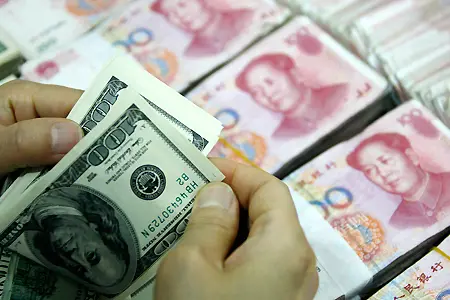China will not try to devalue the yuan to seek a trade surplus as market-determined RMB rates and balanced international trade are in the country's interest.
The U.S. Department of the Treasury last week included China on its "Monitoring List" in a semiannual report to the Congress, as China runs "a significant bilateral trade surplus with the United States" and "a material current account surplus."
The Treasury said it will closely monitor and assess the economic trends and forex policies of the listed countries and regions to make sure they do not pursue policies that give them an unfair competitive advantage.
Chinese leaders have made repeated pledges that the world's top goods trader will never boost exports by devaluing the yuan.
In fact, China's huge trade surplus is a result of growing external demand thanks to economic recovery in the United States and some European countries.
The gains were also caused by the waning value, not volume, of China's imports, mainly due to persistent weak commodity prices.
For instance, the volume of China's crude oil and iron ore imports increased 8.8 percent and 2.2 percent in 2015, while their prices dropped 40 percent and 39 percent.
In addition, developed countries' export controls on expensive high-tech products headed for China also contributed to their trade deficits.
China is trying to boost imports to balance its foreign trade as a huge surplus and the subsequent rise in forex reserves may hurt the central bank's flexibility when making monetary policy.
To that end, the State Council, China's cabinet, has rolled out measures to expand the import of advanced equipment, key components and daily consumer goods, and to streamline the trade process.
In a broader sense, China is implementing structural reforms to rebalance its economy to rely more on household consumption, which will boost domestic demand for high-end goods from foreign countries.
The Political Bureau of the Communist Party of China (CPC) Central Committee agreed at a meeting last week that the government should keep the yuan's exchange rates "largely stable."
The decision-making body promised to gradually establish an exchange rate mechanism based on market supply and demand with a two-way floating and flexibility feature.
China's economic fundamentals rule out substantial depreciation of the yuan and support the long-term stability of the currency.
Despite hardships, the country's GDP expansion maintained steam in the first quarter of 2016 with signs of improving growth quality.
A stable currency serves the interest of both China and its trading partners. China will not manipulate it.
(APD)
 简体中文
简体中文

